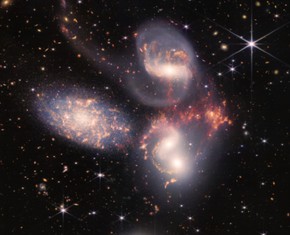The views expressed in our content reflect individual perspectives and do not represent the authoritative views of the Baha'i Faith.
A few weeks ago I wrote an essay about fires in the Amazon and their impact on climate change. A commenter said the essay “feeds climate alarmism, which fuels mass hysteria and delusion.”
Here’s his entire comment:
Amazon fires are actually quite routine. The purported CO2 greenhouse effect has been vastly overestimated and actually climate change has failed to produce the catastrophic warming predicted by climate models. Why such a media sensation about the Amazon fires? It feeds climate alarmism, which fuels mass hysteria and delusion. Remember, it’s easier to control a population when they’re disoriented and confused. If we want to change the world, we need to break free from media-controlled narratives about reality. Comment author: Ivan Corpus
In this series of essays I’ll try to respond to Mr. Corpus and his thoughts on “media-controlled narratives about reality,” but first I’d like to take a moment to explain how Baha’is attempt to engage in consultation with others and resolve arguments, differences and disagreements.
In Baha’i consultation – part of the primary Baha’i principle of the independent investigation of truth – a sequential decision-making process takes place designed to first bring the facts to light and then unify groups of people around a shared understanding of those facts before the group reaches any actual decisions. These passages from the Baha’i teachings illuminate how that fact-finding process most effectively occurs:
… take counsel together in such wise that no occasion for ill-feeling or discord may arise. This can be attained when every member expresseth with absolute freedom his own opinion and setteth forth his argument. Should anyone oppose, he must on no account feel hurt for not until matters are fully discussed can the right way be revealed. The shining spark of truth cometh forth only after the clash of differing opinions. – Abdu’l-Baha, Selections from the Writings of Abdu’l-Baha, p. 87.
They must then proceed with the utmost devotion, courtesy, dignity, care and moderation to express their views. They must in every matter search out the truth and not insist upon their own opinion, for stubbornness and persistence in one’s views will lead ultimately to discord and wrangling and the truth will remain hidden. The honored members must with all freedom express their own thoughts, and it is in no wise permissible for one to belittle the thought of another, nay, he must with moderation set forth the truth … – Ibid., p. 88.
Let us also bear in mind that the keynote of the Cause of God is not dictatorial authority but humble fellowship, not arbitrary power, but the spirit of frank and loving consultation. – Shoghi Effendi, Principles of Baha’i Administration, p. 44.
Clearly though, in today’s world, finding facts can prove difficult. Hyper-politicized controversies tend to generate entire sets of “competing facts,” even though that idea itself seems impossibly absurd. After all, how can something entirely factual and scientifically measurable – the average temperature of our atmosphere or the world’s oceans, for example – possibly have any other interpretation? Facts aren’t arguable – only opinions make contention possible.
So for the purposes of this discussion, I’ll try to rely on factual information gleaned from reliable scientific sources, not from hyper-politicized advocates for one position or another, or so-called “media-controlled narratives,” or on quasi-scientific conjecture or propaganda. That path of reliance on reason, science and objective reality follows another primary Baha’i principle:
There is no contradiction between true religion and science. When a religion is opposed to science it becomes mere superstition: that which is contrary to knowledge is ignorance.
How can a man believe to be a fact that which science has proved to be impossible? If he believes in spite of his reason, it is rather ignorant superstition than faith. …
Put all your beliefs into harmony with science; there can be no opposition, for truth is one. – Abdu’l-Baha, Paris Talks, pp. 141-145.
Some have called the Baha’i Faith “the scientific religion,” not only because so many Baha’is opt for careers as scientists, physicians and engineers, but more importantly because of the strong emphasis in the Baha’i teachings on the efficacy and importance of science as a defining approach to life itself. Abdu’l-Baha, the son of Baha’u’llah, the prophet and founder of the Baha’i Faith, said in a 1912 address given to faculty and students at New York’s Columbia University:
The most noble and praiseworthy accomplishment of man … is scientific knowledge and attainment.
… it is manifest and evident that man, although in body a part of nature, nevertheless in spirit possesses a power transcending nature; for if he were simply a part of nature and limited to material laws, he could possess only the things which nature embodies. God has conferred upon and added to man a distinctive power – the faculty of intellectual investigation into the secrets of creation, the acquisition of higher knowledge – the greatest virtue of which is scientific enlightenment.
This endowment is the most praiseworthy power of man, for through its employment and exercise the betterment of the human race is accomplished, the development of the virtues of mankind is made possible and the spirit and mysteries of God become manifest. – Abdu’l-Baha, The Promulgation of Universal Peace, pp. 29-30.
So let’s see, in this series of essays, if we can endeavor to understand, evaluate and determine whether the opinions expressed in the comment cited above constitute a reasonable position, or whether another interpretation of the factual data might better represent reality.
You May Also Like
Comments

















I have studied things for myself and know that the “…movement of the Left…” (see Baha’i Writings) seems to be active here to stir up a hysteria to misappropriate the world’s priorities. I think the average person is unable to know what data to believe. ...By trashing the use of fossil fuels, the economies of Europe are gradually being weakened. If the ‘green new deal’ ever becomes law, it would destroy the U.S. economy.